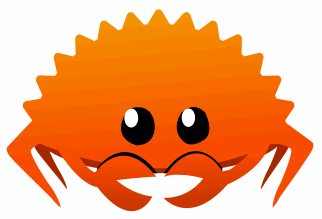Introducing a New Course on Rust Language!

We are extremely excited to announce a (new) full course on the Rust Programming Language!
This course will be the largest project to date here at Electronics Reference, and seems like a logical next step following on our recent articles on Python and the nascent Carbon language.
What is Rust?
Rust is a great programming language that has seen an explosion in popularity over the last few years. It provides some incredible advantages including speed rivaling C++ as well as high reliability and safety.
The tradeoff that Rust demands is that it can be a bit more difficult to get started with than some other modern languages like Python. In addition, there is a relative lack of resources available online to support learning Rust. Most of the courses are behind paywalls, and there are few comprehensive, free courses or tutorials for quickly looking up information. This is where our new Rust course comes in!
Why Make a Course on Rust?
I am planning on dedicating a large amount of time and energy toward it, and anticipate that it may approach or exceed 100 articles. This would be, by far, the largest topic to date on this website, which is very exciting. Thus far I have posted over 20 articles, so I am at around 20% toward my goal for the first course.
After the core course has been completed, I am also hoping to do some Rust based projects including an application or two and possibly a sub-course on using Rust in embedded systems. For projects, I am thinking on focusing on a few practical yet simple tools that can be used for applications in cybersecurity. This would help connect some of the networking and hacking content on Electronics Reference, with Rust-based content.
There is so much happening within the Rust ecosystem, and I am so excited to hopefully contribute meaningfully to the community with this course.
A New Focus on Programming
For those who have been following progress here at Electronics Reference, you may have noticed that we have shifted directions a few times in terms of the content that we have been publishing. The goal was always to focus on a holistic view of electronics not just as circuits but as systems that can be fun to learn, develop, and hack.
As it happens, programming sits at the center of the world of electronics. Low level languages interact directly with the hardware – the circuits – while high level languages are used to build the applications that we rely on to use all of our tech. There’s a reason why ‘Computer Science 101’ courses are often mostly programming. That’s why we want to refocus on programming here at Electronics Reference. If you want to be skilled at working with, fixing, breaking, and hacking electronics, you’ve got to at least be able to understand and build basic applications using modern programming languages.
And Rust is the perfect language to learn because it allows us to program at a high level while dipping down when needed. Rust applications are incredibly fast, safe, and reliable.
Check out our free course on Rust!